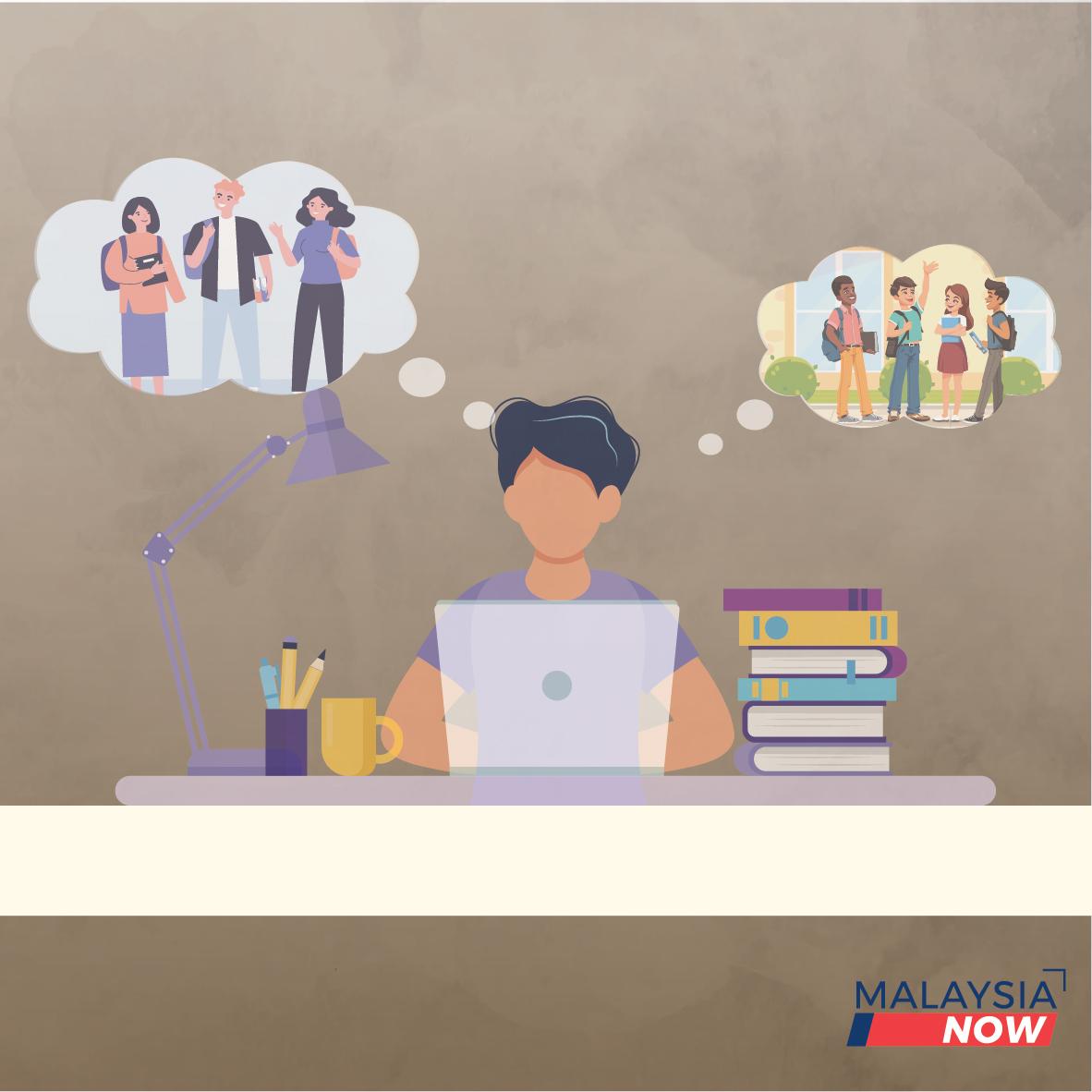How the pandemic is causing kids to lose their social skills – and their friends
Under normal circumstances, children would be going to school and playing with their friends, but now Covid-19 measures are keeping them mostly at home.
Just In
As Covid-19 health measures keep most people at home with mass gatherings discouraged in a bid to slow the rate of infection, experts warn that the prolonged isolation could have a negative effect on children who may experience a lag in social development despite the best efforts of their parents to keep life running under the new normal.
Azlin Nordin, a mother of three, does what she can to ensure that her children are growing in terms of physical, mental and emotional development.
But juggling all three is easier said than done, as Azlin can attest to.
Her eight-year-old daughter, known as “the shy middle child”, is struggling with home-based learning which has also left her cut off from her friends in school.
An introvert to begin with, she is now finding it more awkward to speak with her classmates.
“Unlike her brother, her social skills were affected when she went back to school earlier this year,” Azlin told MalaysiaNow.
“Sh didn’t socialise with her classmates after being confined at home for so long. I could tell my daughter felt awkward.”
“What children need at their age is another person talking to them so that interactive conversations can happen.”
Early childhood practitioner Putri Afzan Maria Zulkifli said under normal circumstances, children would be going to school and practising their social and cognitive skills with teachers and friends.
But the safety measures put in place to check the spread of Covid-19 mean that they are stuck at home most of the time with lessons given online.
“When you put them in front of the television or computer for hours, it’s a one-way communication,” she said.
“What children need at their age is another person talking to them so that interactive conversations can happen.”
She also attributed the problem to the lack of certainty brought about by the global pandemic which she said could cause anxiety and confusion among children.
“Sometimes they can go to school and play with their friends, and sometimes they are stuck at home.”
The on-again, off-again nature of face-to-face classes for the past year or so has also disrupted their routine, while switching from physical to online lessons could affect their development as well, she said.
“This is a very critical stage where children have to explore their autonomy. But sometimes they can go to school and play with their friends, and sometimes they are stuck at home.
“When this is taken away by last-minute decisions, it will rip away their natural developmental process,” she said to MalaysiaNow.
She urged parents to be aware of any changes in their children’s behaviour.
“An energetic child who is being confined at home will be affected psychologically. Parents have to find a balance so that it will not affect their physical, mental and emotional development.”
In some cases, she said, the confusion children face could lead to mental health issues.
“If they are naturally happy-go-lucky and they suddenly just shut down, that is very worrying. Parents have to be aware of these changes.
“Even at a young age, children need therapy for their mental health. It’s haywire up there in their brains.”
For Azlin, the deterioration in her daughter’s social skills are apparent.
Confined at home, she said, her daughter is also losing what friends she has as there is minimal opportunity to interact in online classes.
“Before Covid-19, my daughter didn’t have many friends. Now with the pandemic, she is left with one or two friends only.
“Although she is shy, she truly misses her friends at school,” she added. “Without the pandemic, I think she could develop her social skills a lot better as she would be in school.”
Subscribe to our newsletter
To be updated with all the latest news and analyses daily.
